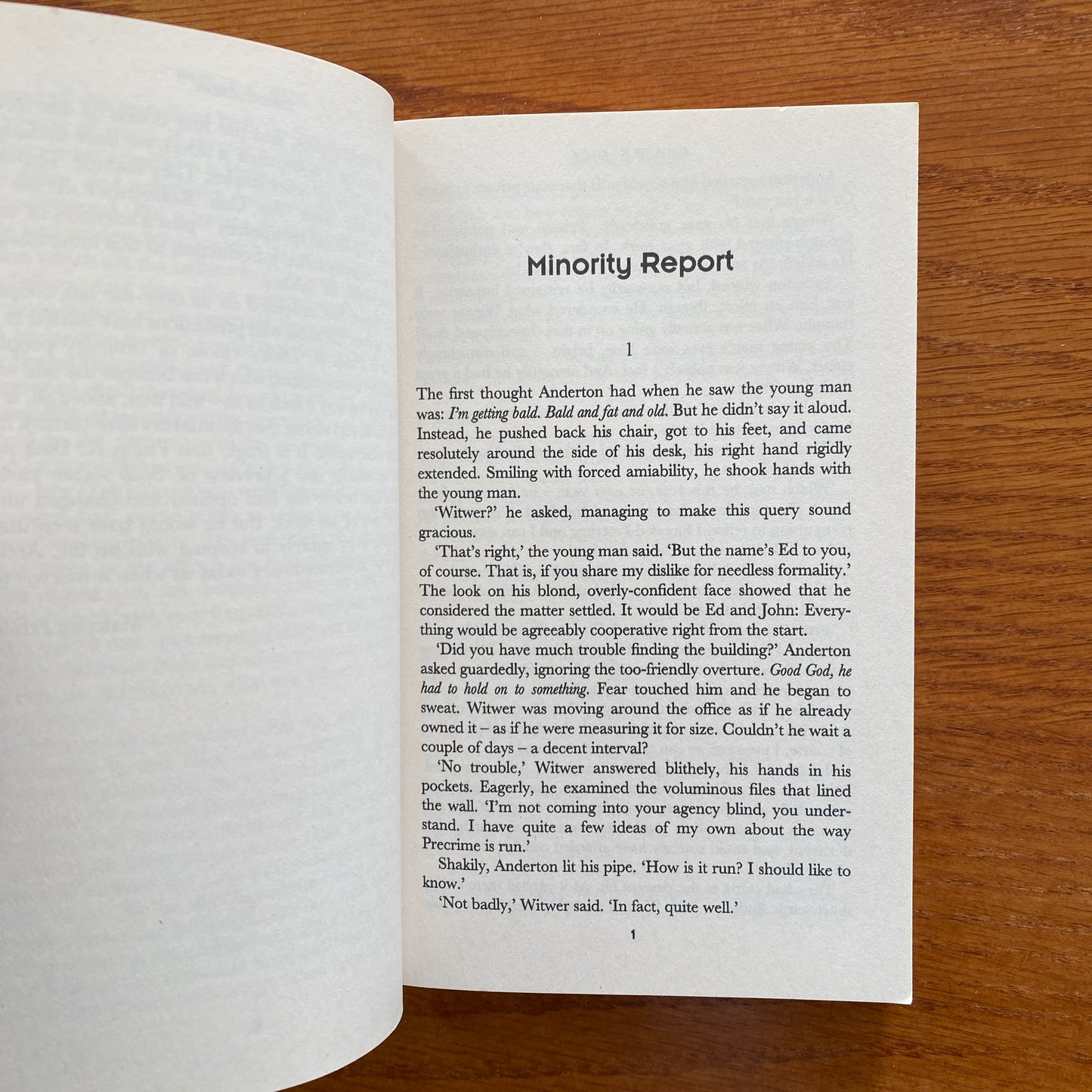Rumorbooks
Philip K.Dick - Minority Report
Philip K.Dick - Minority Report
Couldn't load pickup availability
Philip K. Dick's "Minority Report" is a groundbreaking science fiction short story first published in 1956 and later expanded into a full-length novel. It presents a dystopian future in which a specialized law enforcement unit, known as PreCrime, uses precognitive individuals known as "precogs" to predict and prevent crimes before they occur. The story follows the protagonist, Chief John Anderton, who becomes a fugitive when the PreCrime system predicts he will commit a murder.
At its core, "Minority Report" delves into themes of free will, determinism, and the ethical implications of a society that can predict and prevent crimes before they happen. The story challenges readers to grapple with the idea of punishing individuals for crimes they have not yet committed, raising profound questions about the nature of justice and personal agency.
The concept of "precogs" and the ability to see into the future add a layer of existential and philosophical depth to the narrative. Dick explores the idea that foreknowledge of one's actions can influence and potentially alter those actions, blurring the lines between predestination and choice.
The novel also touches on themes of surveillance, control, and the price of security in a society willing to sacrifice civil liberties in the name of crime prevention. It raises concerns about the potential for abuse and the erosion of individual rights in the pursuit of a utopian vision of a crime-free society.
As with many of Dick's works, "Minority Report" is marked by a sense of paranoia and the blurring of reality and illusion. The story challenges readers to question the reliability of perception and the malleability of truth, themes that are central to Dick's body of work.
The film adaptation of "Minority Report" directed by Steven Spielberg brought the story to a wider audience and introduced its thought-provoking concepts to mainstream cinema. However, the original written work remains a cornerstone of science fiction literature, known for its intellectual complexity and its exploration of the ethical and philosophical dilemmas posed by advanced technology and surveillance.
In summary, Philip K. Dick's "Minority Report" is a seminal work of science fiction that continues to captivate readers with its exploration of free will, determinism, and the consequences of a society that can predict and prevent crimes. It stands as a thought-provoking and enduring contribution to the genre, inviting readers to grapple with the moral and philosophical implications of a future shaped by technology and human ambition.
Share








